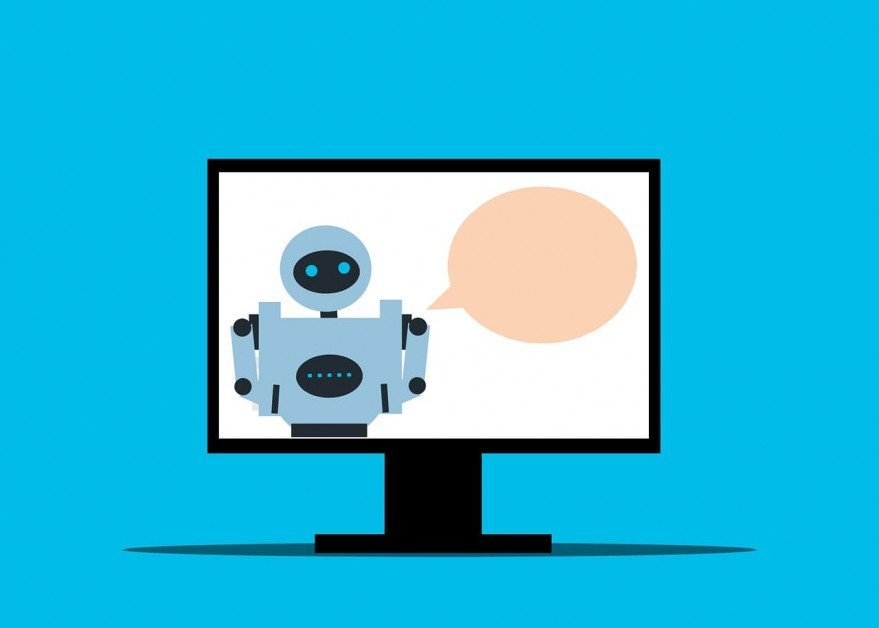10 Best AI Tools For Business (october 2023)

You’re in luck! This article is about the 10 best AI tools for business in October 2023. Whether you’re an entrepreneur, a small business owner, or a seasoned executive, incorporating artificial intelligence into your operations can revolutionize the way you do business. From chatbots and virtual assistants to predictive analytics and automated data analysis, these cutting-edge AI tools are designed to streamline your processes, enhance customer experiences, and drive growth. Get ready to discover the top AI tools that will take your business to new heights of success!

This image is property of www.unite.ai.
1. Chatfuel
Chatfuel is an incredible AI tool that allows you to effortlessly create AI-powered chatbots. With its user-friendly interface, even those without extensive programming knowledge can create their own chatbots in no time. It provides seamless integration with popular messaging platforms such as Facebook Messenger, WhatsApp, and Slack, making it easier than ever to reach your target audience.
One of the key features of Chatfuel is its customizable chatbot templates. These templates cover a wide range of industries and use cases, giving you a head start in creating a chatbot tailored to your specific needs. Whether you’re in e-commerce, customer service, or lead generation, Chatfuel has a template to help you get started.
Additionally, Chatfuel offers advanced analytics and reporting capabilities. This allows you to track and analyze various metrics, such as user engagement, conversion rates, and customer satisfaction. Armed with valuable insights, you can continuously improve your chatbot’s performance and ensure that it meets the needs of your customers.
2. Salesforce Einstein
Salesforce Einstein is an AI-powered customer relationship management (CRM) tool designed to help businesses build stronger relationships with their customers. One of its standout features is intelligent lead scoring and prioritization. With Einstein, you can automatically assign scores to leads based on various factors, such as engagement level and demographic information. This helps your sales team focus their efforts on the most promising leads, increasing their efficiency and effectiveness.
Automated email responses is another powerful feature offered by Salesforce Einstein. It leverages AI to analyze incoming emails and automatically generates personalized responses. This saves your team time and effort, allowing them to focus on more critical tasks.
Predictive forecasting is yet another valuable feature provided by Salesforce Einstein. By analyzing historical data and patterns, Einstein can predict future sales and demand. This enables you to make informed business decisions and allocate resources effectively.
Lastly, Salesforce Einstein incorporates natural language processing for data insights. It can analyze unstructured data, such as customer reviews and social media posts, to gain valuable insights into customer sentiment and preferences. With these insights, you can tailor your products and services to better meet customer needs.

This image is property of www.elegantthemes.com.
3. IBM Watson
IBM Watson is renowned for its advanced machine learning capabilities. It empowers businesses to leverage the power of AI and make sense of vast amounts of data. Its natural language understanding technology enables Watson to comprehend and interpret human language, opening up a world of possibilities for communication and data analysis.
One of the key features of IBM Watson is its virtual agent creation capability. With Watson, you can create intelligent virtual agents that can converse with customers, answer questions, and provide personalized recommendations. This enhances the customer experience and reduces the need for human intervention.
IBM Watson also offers text-to-speech and speech-to-text conversion capabilities. This allows businesses to convert written text into natural-sounding speech and vice versa. It is particularly useful for applications such as voice assistants, automated customer support, and accessibility features.
Another impressive aspect of IBM Watson is its image and video analysis capabilities. It can analyze images and videos to extract valuable information, such as object recognition, facial analysis, and sentiment analysis. This helps businesses gain insights from visual content and make data-driven decisions.
4. Amazon Lex
Amazon Lex is a powerful conversational AI technology that enables businesses to build chatbots for various platforms. Whether you want a chatbot for your website, mobile app, or messaging platform, Amazon Lex has got you covered. Its easy-to-use interface and comprehensive documentation make it accessible to users of all levels of expertise.
One of the standout features of Amazon Lex is its automatic speech recognition (ASR) capability. This allows your chatbot to understand and transcribe spoken language, enabling natural and seamless conversations with users. This is particularly beneficial for applications such as voice-based customer support and voice-controlled interfaces.
Intent recognition and fulfillment is another key feature offered by Amazon Lex. It uses natural language understanding to identify and understand the intent behind user queries. Based on this intent, the chatbot can execute specific actions or provide relevant information, creating a personalized and efficient user experience.
Amazon Lex also seamlessly integrates with various AWS services, such as Lambda, DynamoDB, and S3. This integration allows you to leverage the full power of AWS and build scalable and robust chatbot applications.

This image is property of media.geeksforgeeks.org.
5. Google Cloud AI
Google Cloud AI offers a wide range of machine learning and data analysis tools to empower businesses with AI capabilities. Its AutoML (Auto Machine Learning) feature allows users to create custom machine learning models without extensive coding knowledge. This enables even those without a background in machine learning to harness the power of AI and create models specific to their business needs.
Google Cloud AI also provides speech and image recognition capabilities. It can accurately transcribe speech, making it useful for applications like transcription services and voice-controlled interfaces. Additionally, it excels in image recognition, enabling businesses to automatically tag and classify images, extract valuable information, and improve search capabilities.
Natural language processing is another strong suit of Google Cloud AI. It can analyze and interpret human language, allowing businesses to understand customer sentiment, extract insights from text, and provide personalized recommendations. Moreover, it offers robust translation services, facilitating communication across languages and bridging gaps in global markets.
6. Microsoft Azure Cognitive Services
Microsoft Azure Cognitive Services is a comprehensive suite of AI tools designed to augment various cognitive tasks. Its computer vision capabilities enable businesses to analyze and extract information from images and videos. It can perform tasks like object recognition, image classification, and facial recognition, opening up a wide range of applications like inventory management, security, and content moderation.
Speech and language understanding is another key feature provided by Microsoft Azure Cognitive Services. It can transcribe spoken language, analyze sentiment, and interpret intent, enabling businesses to create intelligent voice assistants and personalized recommendations.
Personalized recommendations are particularly noteworthy as they allow businesses to deliver tailored experiences to their customers. By understanding customer preferences and behavior, Azure Cognitive Services enables businesses to recommend products, articles, or content that align with individual tastes and needs.
Text analytics and sentiment analysis capabilities further enhance the usefulness of Microsoft Azure Cognitive Services. Businesses can extract insights from large volumes of text data, analyze sentiment, and gain a deeper understanding of customer feedback. This enables businesses to make data-driven decisions, improve customer satisfaction, and refine their products and services.

This image is property of www.unite.ai.
7. OpenAI GPT-3
OpenAI GPT-3 stands out as a cutting-edge language generation model that has revolutionized natural language processing and understanding. It has been hailed for its ability to generate human-like text and participate in coherent conversations. GPT-3 can be employed in a wide range of applications, including content creation assistance, chatbots, and virtual assistants.
One of the standout features of GPT-3 is its multi-modal capabilities. It can process and generate text in coordination with images, sounds, and even code. This opens up new possibilities for creating immersive user experiences and interactive applications.
Additionally, GPT-3 offers advanced text completion capabilities. With just a few input sentences, it can generate coherent and contextually appropriate text, saving time and effort for content creators and writers.
The natural language processing and understanding capabilities of GPT-3 enable businesses to automate tasks that traditionally required human intervention. From drafting emails to generating social media posts, GPT-3 can assist in various content creation and communication tasks.
8. H2O.ai
H2O.ai offers an automated machine learning platform that simplifies the process of creating and deploying machine learning models. Its user-friendly interface and powerful features make it accessible to users with varying levels of expertise.
One of the key features of H2O.ai is its feature engineering and selection capabilities. It automates the process of identifying relevant features and selecting the optimal set of features for model training. This saves time and effort for data scientists and improves the performance of machine learning models.
Model interpretability and visualization is another valuable aspect of H2O.ai. It provides intuitive and interactive visualizations to help users understand the inner workings of their models. This allows for better decision-making and facilitates the explanation of model predictions to stakeholders.
H2O.ai also excels in time-series analysis, which is crucial for businesses dealing with time-dependent data. It offers specialized algorithms and tools for analyzing time-series data, detecting patterns, and making accurate forecasts. This enables businesses to gain insights into trends, make informed decisions, and optimize operations.
Anomaly detection is yet another feature offered by H2O.ai. It can automatically identify unusual patterns or outliers in data, helping businesses detect fraud, ensure data quality, and improve anomaly detection systems.

This image is property of clickup.com.
9. TensorFlow
TensorFlow is a flexible and scalable machine learning framework developed by Google. It provides a comprehensive set of tools and libraries for creating and training AI models. TensorFlow supports various machine learning techniques, including deep learning, reinforcement learning, and classical ML algorithms.
With TensorFlow, you can create and train AI models using Python, one of the most popular programming languages for data science. Its extensive ecosystem of libraries and frameworks, such as Keras and TensorBoard, further enhance the capabilities of TensorFlow.
TensorFlow’s deep learning capabilities are particularly noteworthy. It allows users to build and train deep neural networks, enabling the extraction of complex patterns and representations from data. This makes TensorFlow suitable for a wide range of applications, including computer vision, natural language processing, and time-series analysis.
Furthermore, TensorFlow simplifies the process of model deployment and serving. It provides tools for exporting and deploying trained models in production environments, allowing businesses to leverage their AI models to make real-time predictions and automate decision-making.
Integration with various programming languages, including Python, C++, and Java, makes TensorFlow accessible to a wide range of developers and machine learning practitioners.
10. UiPath
UiPath is a leading Robotic Process Automation (RPA) tool that combines the power of AI with automation. It enables businesses to automate repetitive and rule-based tasks, freeing up valuable time for employees to focus on more strategic activities.
One of the key features of UiPath is its AI-powered task automation capabilities. By leveraging AI, UiPath can handle unstructured data, recognize patterns, and perform tasks that previously required human intervention. This allows businesses to automate complex processes and improve operational efficiency.
Process mining and optimization is another valuable aspect offered by UiPath. It can analyze and visualize business processes, identify bottlenecks and inefficiencies, and suggest ways to optimize them. This helps businesses streamline their operations, reduce costs, and improve overall performance.
UiPath also excels in data extraction and document processing. It can automatically extract data from various sources, such as emails, invoices, and forms, and transform them into structured formats. This eliminates the need for manual data entry, reduces errors, and improves data accuracy.
Workflow automation is yet another powerful feature of UiPath. It enables businesses to create, manage, and automate end-to-end workflows, ensuring seamless integration between different systems and applications. This helps enhance collaboration, eliminate manual handoffs, and improve overall productivity.
In conclusion, these ten AI tools offer a wide range of capabilities and functionalities to help businesses harness the power of AI. Whether you’re looking to create chatbots, analyze data, automate tasks, or build machine learning models, these tools have got you covered. By leveraging AI, businesses can improve customer experiences, optimize operations, and make data-driven decisions. With the rapid advancements in AI technology, these tools are likely to continue evolving and empowering businesses in the future.
Want to write articles like us? Get your copy of AI WiseMind here!






